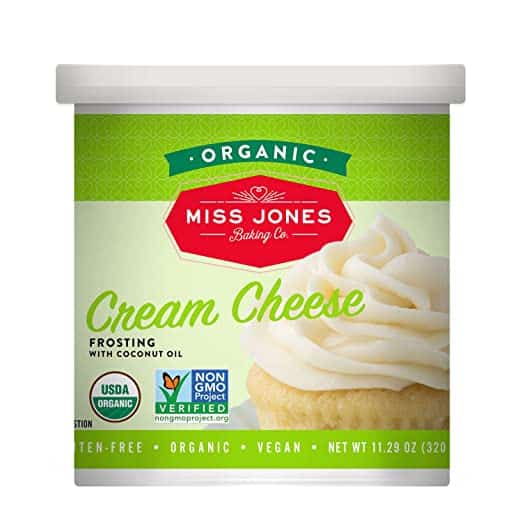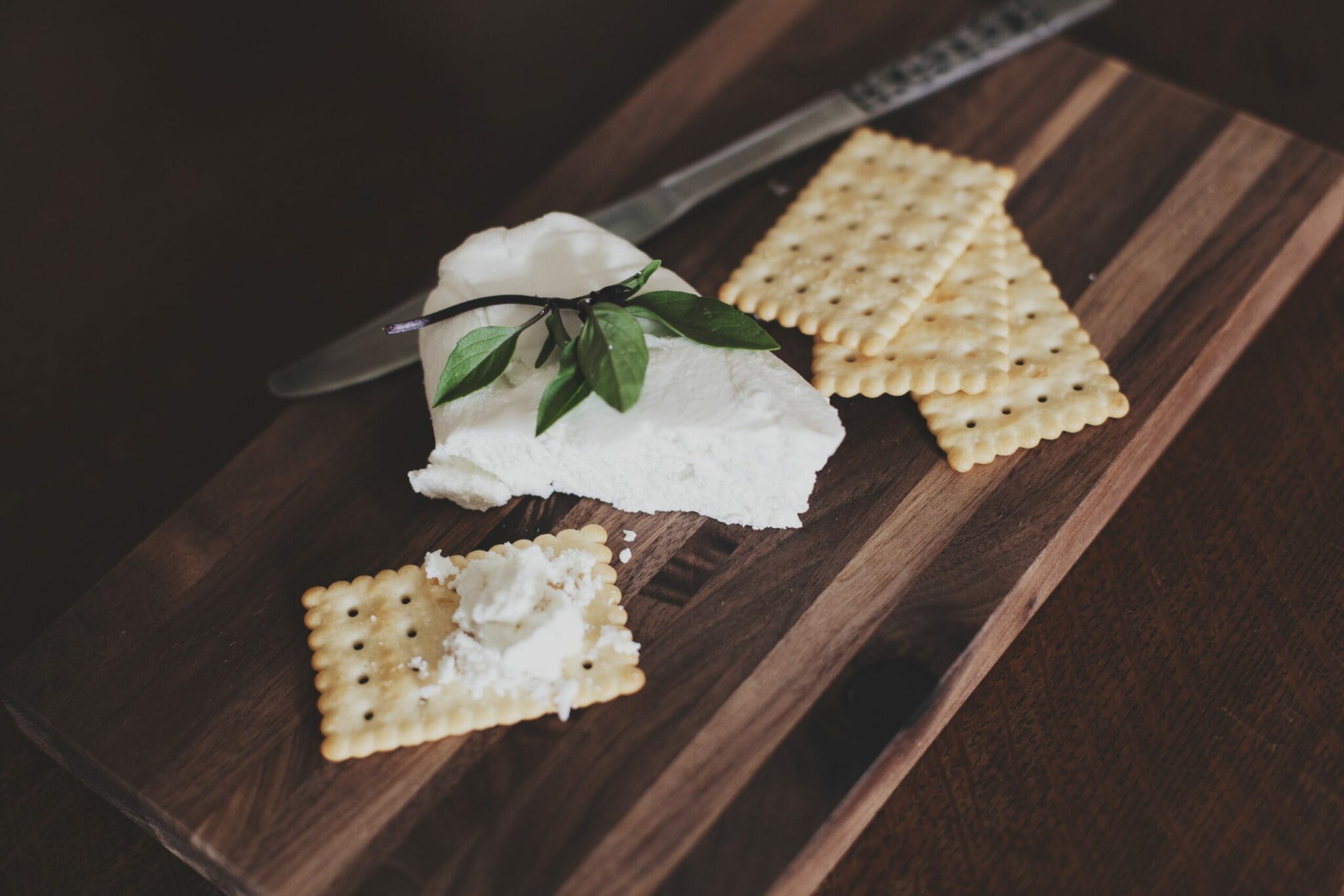Updated on April 9th, 2023
Cream cheese is a soft type of cheese often used as a spread for bagels, sandwiches, and wraps. It can also be added to other recipes, such as soups, baked goods, and pancakes. Typically, lactic acid is added to cream, which reduces the pH level, causing it to coagulate and separate into curds and whey. The whey protein is then strained out, the curds are heated, and other cream cheese ingredients like stabilizers are added. A clotting enzyme is also sometimes used, which helps improve the texture and firmness of the final product.
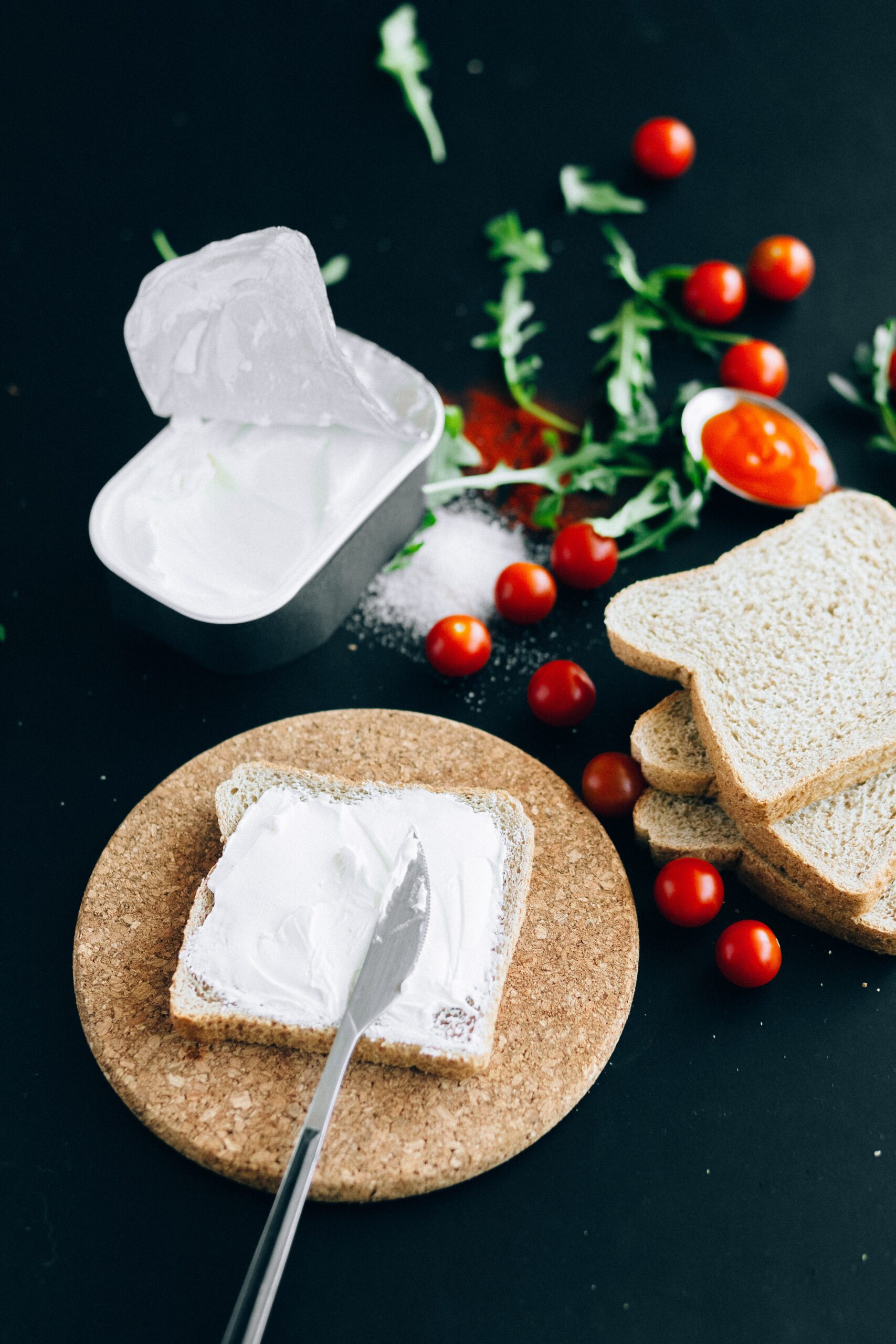
Although traditional recipes use milk, cream, or a combination of the two, other varieties are also available, such as vegan cream cheese made from non-dairy milk or yogurt.
The amount of protein, fat, and carbs in cream cheese can vary quite a bit depending on which variety you select. The light cream cheese nutrition facts, for example, maybe much different than the full-fat cream cheese nutrition facts. Regardless of whether it’s whipped cream cheese nutrition or fat-free cream cheese nutrition, however, most types are high in calories and low in carbs. Many varieties also contain a small number of certain micronutrients, such as vitamin A, phosphorus, and calcium.
Two tablespoons of regular cream cheese contain the following nutrients:96 calories; 1 gram carbohydrates; 1.5 grams protein; 9.5 grams fat; 29.7 milligrams phosphorus; 27.4 milligrams calcium; riboflavin; pantothenic acid; vitamin E, A, K, and folate.
Non Dairy Substitute for Cream Cheese
Cream cheese is a type of soft cheese that is made from cream that has been coagulated, strained, and treated with certain enzymes and additives. However, it’s also high in calories and relatively low in micronutrients. It also has a short shelf life and may not be suitable for those with certain dietary restrictions. For example, although it’s low in lactose, it should not be consumed by those with an allergy to dairy products or those following a dairy-free diet.
Dairy-free cream cheeses are a great alternative to conventional brands if you have a milk allergy, are lactose intolerant, or if are avoiding dairy products for environmental or ethical reasons. However, there are certain downsides to dairy-free cream cheese. For one, it is often highly processed than regular cream cheese. But this minor difference is justifiable when you don’t have to worry about your body’s calories intake. Below is a list of non-dairy substitutes for cream cheese. They avail you of the opportunity to eat your creamy goodness with guilt or fear. You don’t need to get on your scale every morning in fear when you use these substitutes.
Miyoko’s Organic Cultured Vegan Cream Cheese
Miyokos Organic Vegan Cream Cheese is a close substitute to cream cheese, and it is non-dairy. Miyoko’s Organic Cultured Vegan Cream Cheese is our top pick. It’s made out of cashews and coconut milk and is available in three savory flavors: Plain, Sensational Scallion, and Fish-Free Lox. There are no artificial additives or flavors in any of these cream cheeses — instead, they are flavored with actual herbs and spices and colored with vegetable juice. Substitutes the same amount of Miyokos Organic Vegan Cream Cheese as you would regular cream cheese.
Kite Hill Non-Dairy Cream Cheese
Kite Hill Dairy Free Almond Milk Plain Cream Cheese is another great non-dairy substitute for cream cheese. Instead of using cow’s milk, Kite Hill non-dairy cream cheeses are made with almond milk. They contain some additives, including xanthan and guar gum. However, these cream cheeses contain no artificial ingredients. Instead, the mushroom extract is used as a natural preservative.
Tofutti Imitation Cream Cheese
Tofutti “Better Than Cream Cheese” is a moderately processed dairy-free cream cheese made with a blend of vegetable oil, soy protein, and tofu. It contains additives, including various types of natural gums (locust bean, guar gum, cellulose, and xanthan gum) and maltodextrin. Maltodextrin is a starchy carbohydrate added to enhance texture. It’s typically derived from corn, potato, or rice and is safe to consume.
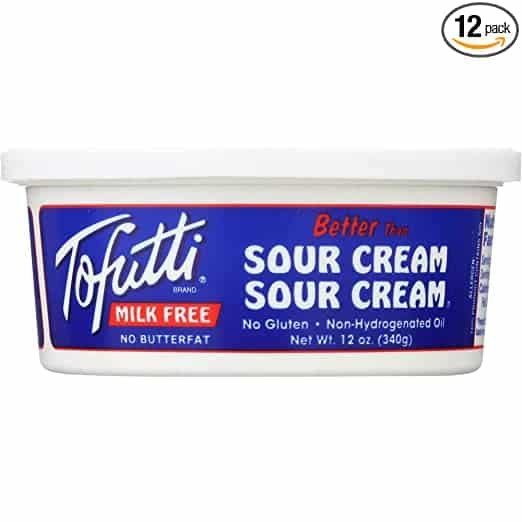
Daiya Cream Cheese Style Spread
Daiya dairy-free cream cheeses are made using a variety of ingredients such as coconut oil, coconut cream, plant-based proteins, and natural starches to enhance texture. Like other dairy-free cream cheeses, Daiya also uses various gums in their products. Depending on the type of cream cheese, real-food ingredients such as herbs and spices are used for flavor. However, they also use “natural vegan flavors,” a much more ambiguous additive.
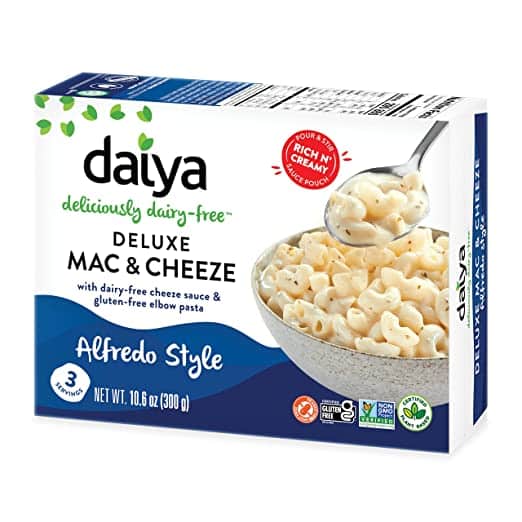
Go Veggie Vegan Cream Cheese Alternative
Go Veggie Vegan Cream Cheese is made using coconut oil, sunflower oil, soy protein, and various additives to improve taste and texture. Like others on the list, it contains gums and natural flavors. In addition, it contains tricalcium phosphate, an additive used to prevent clumping. This additive has been deemed safe but is an indicator that the product is highly processed. Because it’s made using coconut oil, this brand is relatively higher in saturated fat compared to other cream cheese alternatives.
Frequently Asked Questions (FAQs)
What Ingredients Are in Vegan Cheese?
Vegan cheeses are 100 percent animal-free and made using vegetable proteins. Usually, they’re made from soy; nuts, such as cashews and macadamias; and vegetable oils, such as coconut oil. You can also find cheeses that derive from agar, tapioca, peas, and arrowroot.
Is there a cheese that is non-dairy?
Yes. Most dairy-free cheeses are made from nuts. These cashew-based shreds not only taste like cheese but also melt perfectly. Varieties include Mild Cheddar, Sharp Cheddar, Mozzarella, and Fiery Jack.
Is Cabot cream cheese lactose-free?
Cabot is a Vermont-based brand that makes several lactose-free flavors of their cheese like Monetary Jack, Vermont Cheddar, and New York Extra Sharp Cheddar. Not only does it come in block style, but also shredded, which is perfect for tacos or quesadillas.
Conclusion
Cream cheese is a type of soft cheese that is made from cream that has been coagulated, strained, and treated with certain enzymes and additives. However, it’s also high in calories and relatively low in micronutrients. It also has a short shelf life and may not be suitable for those with certain dietary restrictions. Dairy-free cream cheeses are a great alternative to conventional brands if you have a milk allergy, are lactose intolerant, or if are avoiding dairy products for environmental or ethical reasons. However, there are certain downsides to dairy-free cream cheese. Overall, opt for dairy-free cream cheese with minimal additives.
